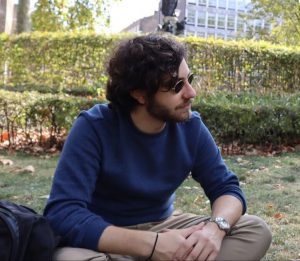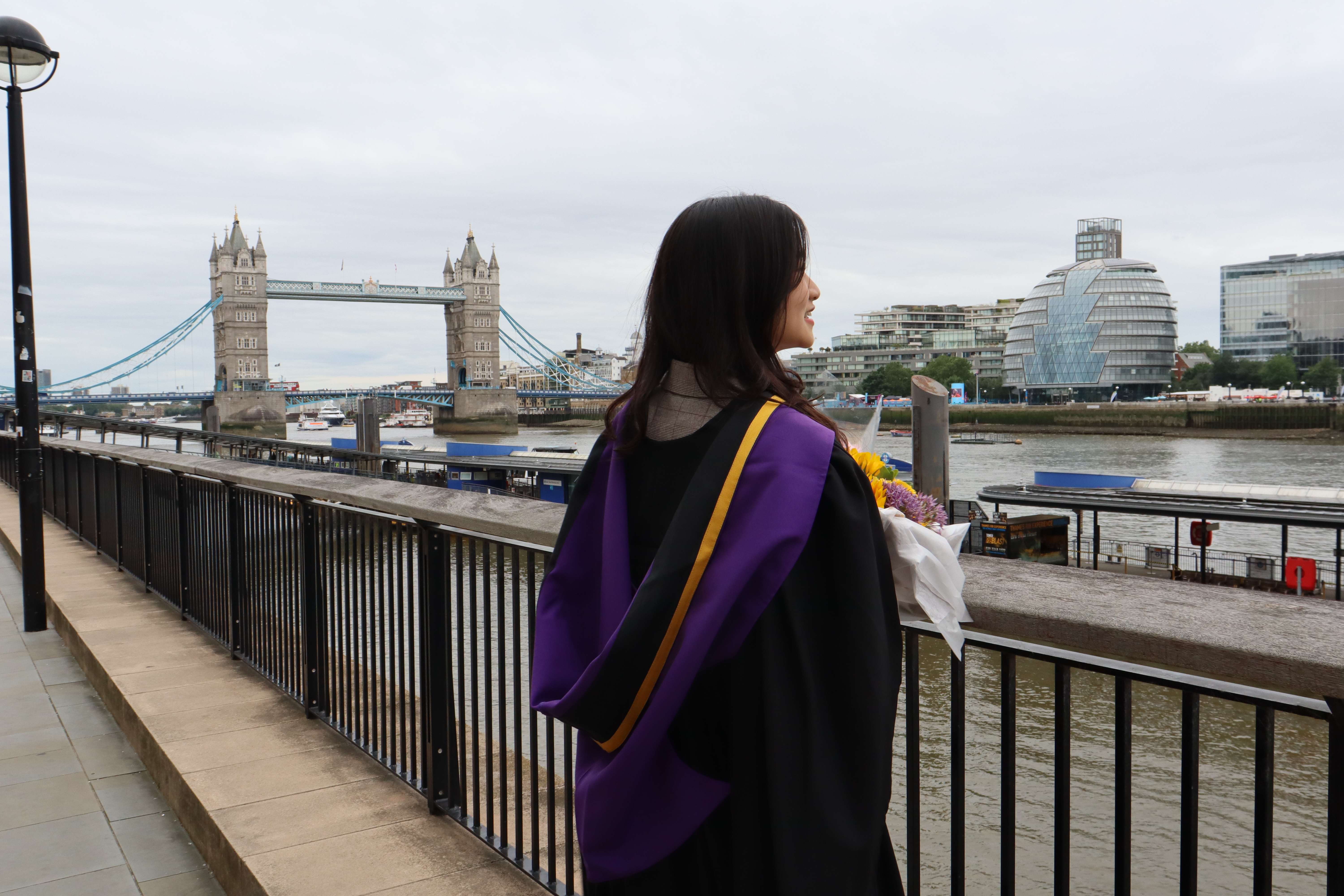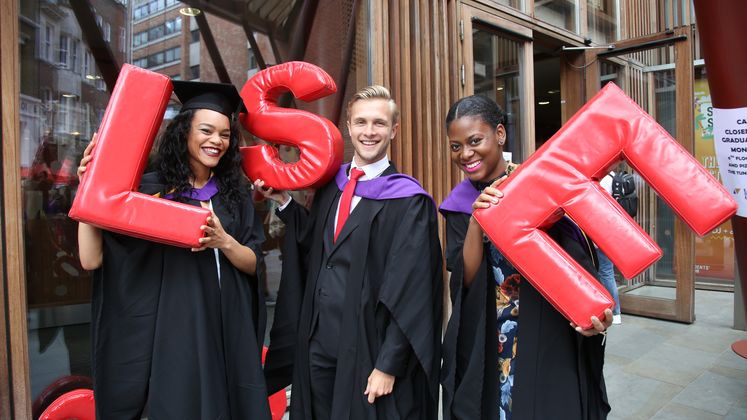This blog follows up Part I where I interviewed International History postgraduates about their plans following the hand-in of their dissertation. I’m incredibly grateful to these students who took the time to share their experiences and plans, as well as their candid thoughts about this and future years.
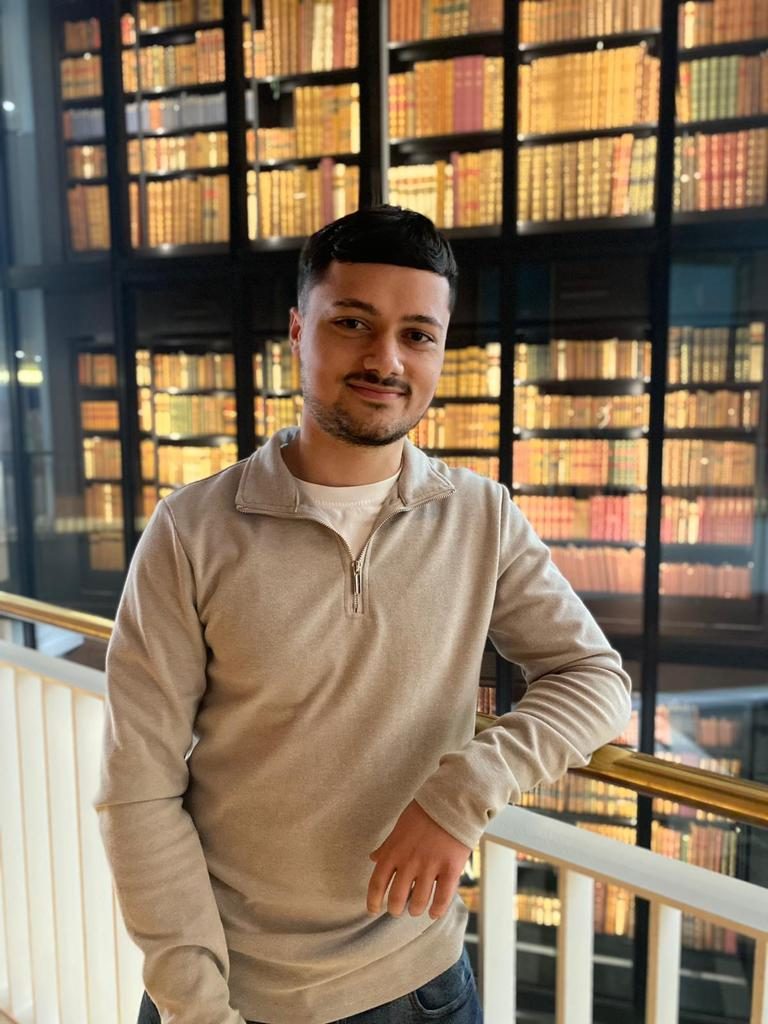
Marcus
What are your plans after you finish your Master’s in the International History department?
After I finish my degree I will be beginning a year-long role as a research assistant for a think tank that deals with security and counterterrorism-related issues. In the long term, I plan to return to academia and hopefully work towards a PhD.
Has this year prepared you for the future?
This year has definitely prepared me for the future. Not only has each module provided me with transferable skills that I can take to the workplace, but the content of the modules themselves will also prove useful in many different fields.
What motivated you to study a Master’s degree, and have you accomplished what you set out to achieve?
I really wanted to continue studying history after my undergraduate degree and this course at LSE interested me the most. Now that I’ve finished I can say it’s definitely lived up to expectations!
Do you have any advice for future students?
Don’t be too narrow-minded with your module selection. If you have a future career in mind then it’s great to pick modules that can help you but at the same time make the most of the opportunity you have to explore histories and cultures that you haven’t yet had a chance to.
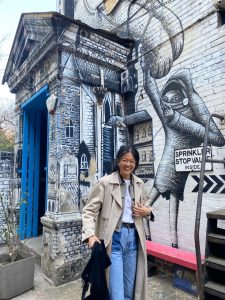
Anda
What are your plans after you finish your Master’s in the International History department?
I will be going back home to Indonesia to run and hopefully expand my cookie business, Crumb House! It’s an online business based in Bali, but we have plans to have our own store and branch out to other cities in Indonesia.
How has this year prepared you for the future?
The fact that most of my classes were online has proven to me that I can do my work – my Master’s and managing my business – remotely. It’s not ideal but it is doable! The degree has prepared me with transferrable skills that I can apply in many areas of my life. Such skills include argumentation, negotiation, and communication skills which I will need if I choose to pitch my business to potential investors! Most importantly, this year has taught me how important it is to prioritize rest and mental health. Especially during the lockdowns, it was particularly difficult to differentiate my personal life from university and my business since everything was done out of the home.
What motivated you to study a Master’s degree, and have you accomplished what you set out to achieve?
Initially, I wanted to eventually find work in the UK/London and thought that a Master’s degree will help me decide what it is I wanted to do. I also enjoyed studying History as an undergraduate and wanted to explore more areas of Indonesian history at a higher level. I’ve definitely accomplished the latter goal as I’m currently writing my dissertation on the Indonesian exiles that emerged out of 1965 and the ways in which they continued to exercise agency over nation-building. Although I would have loved to find work and stay in the UK, I am excited to go back home and work on expanding Crumb House!
Do you have any advice for future students?
If you can and have the means to, study something you enjoy and are passionate about! Enjoy your university years, don’t take yourself so seriously. Trust the process, it will all work out!
Xenofon
What are your plans after you finish your Master’s in the International History department?
2020 to 2021 was a very disorienting year, for everyone, including myself, and I certainly got blown off course, in many respects – plans made had to be revisited and changed, and the future seems ever uncertain. I will be taking a year off, dedicated to thinking about what the next step is – maybe I will do a PhD in 2022, but I’m not yet sure – and also to writing, as it has been my longtime passion since I was very young, and always had to be placed in the backburner for my academic responsibilities. For a year, I will seek to pursue that exclusively and see where it takes me.
How has this year prepared you for the future?
This year was spent inside, with extremely few to non-existent opportunities. Most of the time, I wasn’t even thinking about the future. So, I suppose it helped me learn how to cope with a bleak present more than anything else.
What motivated you to study a Master’s degree, and have you accomplished what you set out to achieve?
This year definitely helped improve my writing skills, as writing is all about exercise and continuous contact. As for whether my postgrad helped me at all decide my PhD, in a way perhaps yes, as one of the topics I rejected for my dissertation might end up being my PhD research!
Do you have any advice for future students?
Two things. Never neglect to demand the quality of teaching and assistance that you are paying for – if, for whatever reason, your university experience falls short of your expectations, don’t settle for it, find other like-minded students and try to fix that. The university should be there to help you achieve the best that you can achieve.
Secondly, never stop doubting, criticising, and defying established notions and dogmas, even in your courses. No matter how odd or even outrageous it might sound to your peers and professors, speak your mind, put forth your ideas, eloquently and politely, and discuss them in splendid and creative conversation. The university must always be a forum for free speech and the free exchange of ideas.
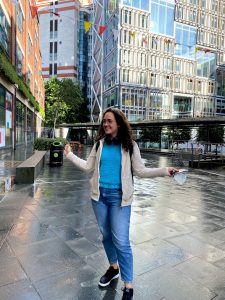
Sinéad
What are your plans after you finish your Master’s in the International History department?
I have a place on the GDL course to begin in January – I am really looking forward to it! Between now and then I have a mini-pupillage and am seeking different work experience opportunities.
Has this year prepared you for the future?
The transferable skills that this course has offered are endless, the opportunity to hone my written communication skills, research abilities, and analytical thinking will prove incredibly useful. I would also say that participating in seminars and group projects via zoom has provided an excellent opportunity to practice teamwork in a more challenging setting which will undoubtedly be useful in any workplace.
What motivated you to study a Master’s degree, and have you accomplished what you set out to achieve?
I chose to study the Theory and History of International Relations course because I wanted to branch out somewhat from my undergraduate History degree and study IR, while also studying History at a post-grad level. I’m pleased to say I really enjoyed the experience – the seminars were incredibly engaging, and I loved meeting people coming to the course with all kinds of different academic backgrounds and ambitions.
Do you have any advice for future students?
Take advantage of the opportunity to speak to some wonderful academics and share your ideas – attend office hours, and try to contribute as much as you can during seminars. Also, despite being a post-grad student, don’t be shy to get involved in societies. As the Postgraduate Officer of the History Society this year we ran events (albeit on zoom) specifically for postgrads to bring them together to have a chance to get to know each other, have a laugh, and share their experiences at LSE.


